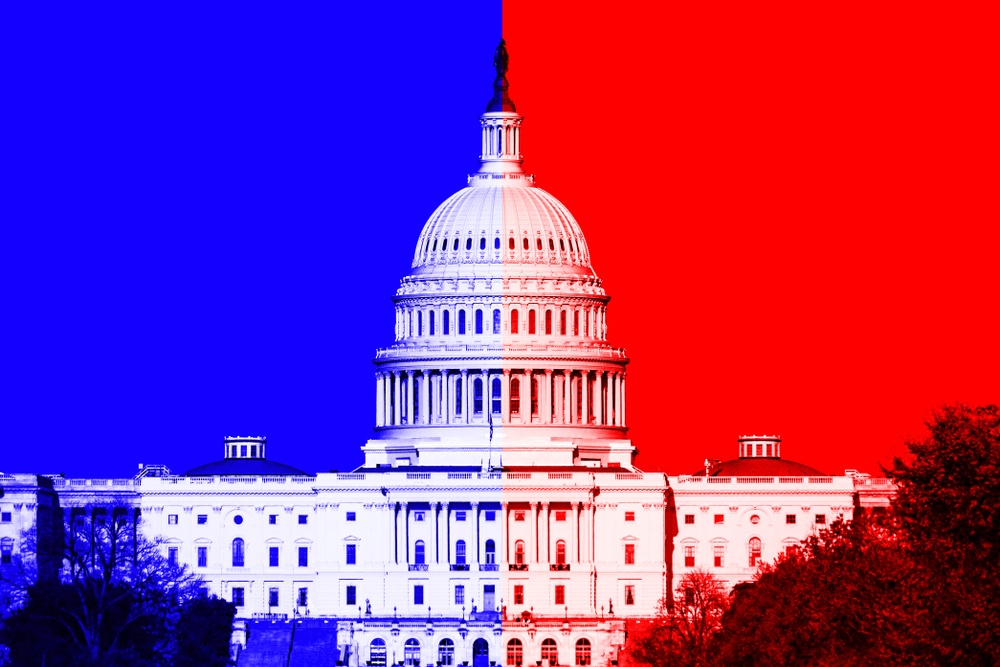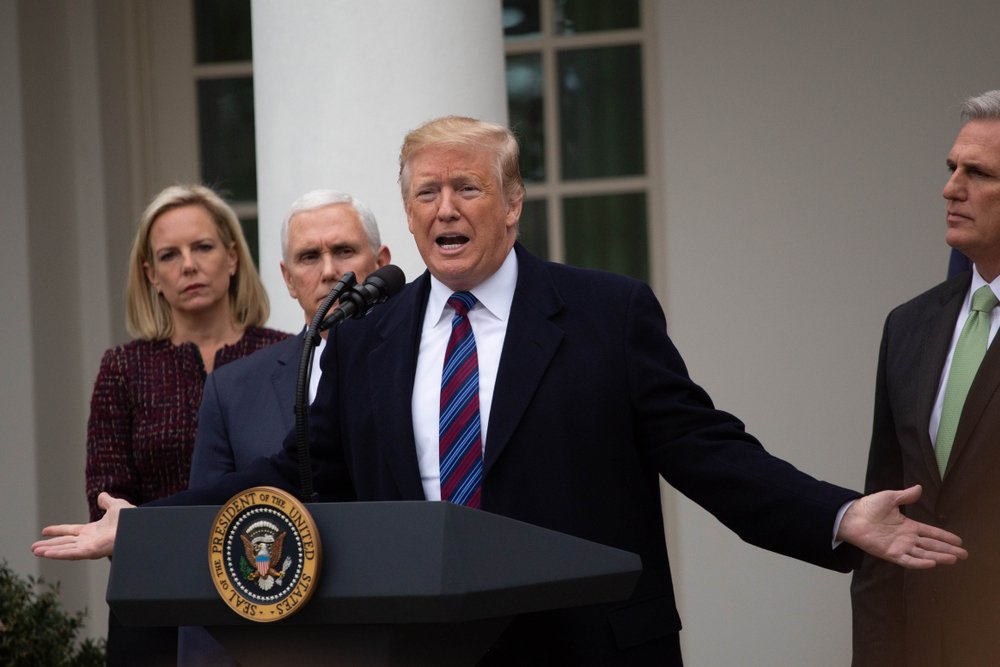4 Ways the U.S. Government Shutdown is Menacing Bitcoin and the Crypto Market

The standoff between Trump's administration and the Democrats is also impacting cryptocurrency markets. | Source: Shutterstock
By CCN.com: The U.S. government shutdown has entered its 35th day. For five weeks, many industries have been paralyzed and federal workers are living on food stamps and soylent.
It’s almost incomprehensible to anyone living outside the land of the plenty that the majority of its population lives from paycheck to paycheck. This is still the world’s largest economy, after all.

While for some, including Morgan Stanley CEO James Gorman, the solution to the shutdown may be obvious, compromise is hardly a word in president Trump’s vocabulary.
How the U.S. Government Shutdown Affects Crypto
While cryptocurrency is a decentralized technology, companies pertaining to the industry must act within certain regulation. And that’s on hold for the time being.
Federal agencies that are in charge of crypto regulation, including the Commodity Futures Trading Commission (CFTC) and the Securities and Exchange Commission (SEC), have placed major developments on ice.

CCN.com caught up with Nishant Jacob, Senior Product Manager at BitBounce, a Tim Draper-backed cryptocurrency company with over 1.4 million registered users, to find out how the U.S. government shutdown is harming his company and the crypto industry in general. Here are the 4 main ways:
1. Issues with Talent Acquisition and Retention
As a business, we have been impacted by being unable to access important immigration services such as e-verify, which affects our current employees and our ability to hire skilled foreign new graduates. This causes potential issues with talent acquisition and retention.
“We also expect issues with delays in processing our licensing applications which extends periods of regulatory uncertainty, making business planning more difficult. We imagine this could impact other companies in the industry as well.”
2. Further Delays Approving a Bitcoin ETF
Could the furloughed SEC delay a Bitcoin ETF? If so, how could that impact the future of Bitcoin and crypto as a whole?
The SEC is directly impacted by the shutdown and as their website states, they have very limited staff available to respond primarily to emergency situations.

We expect this to impact timelines around their processing of things like a Bitcoin ETF as the backlog continues to grow.
“In terms of its impact on crypto as a whole, crypto has faced many challenges over the course of its development so while this may slow things down it’s unlikely to derail them completely.”
3. Public Sentiment Towards Cryptocurrency
How does the U.S. government shutdown impact people’s faith in fiat and cryptocurrencies? Here, this calamity may actually be a positive thing for crypto. After all, Bitcoin was born in response to one of the worst financial crises in living memory.
“We’ve seen a fall in the general trust in institutions ever since the financial crisis which is in part what has helped fuel the interest and growth around cryptocurrencies.”
We can expect incidents like the shutdown to continue to fuel this distrust and interest in decentralized systems.
4. Uncertainty makes cryptocurrency companies vulnerable
Will a lack of regulators cause greater uncertainty, maybe even curtail innovation in crypto?
A lack of regulations can, unfortunately, create uncertainty which makes it hard to plan towards longer-term goals.
“Of course, regulation that is overly draconian can crush an emerging space, so a delicate balance is required here with regulators understanding the technology they intend to regulate and providing commonsense regulations that provide certainty for organizations without stifling innovation.”
As federal contractors lose millions of dollars a day and JPMorgan’s CEO predicts that an extended shutdown could slash U.S. economic growth to zero, every industry in the U.S. and further afield continues to feel its effects.